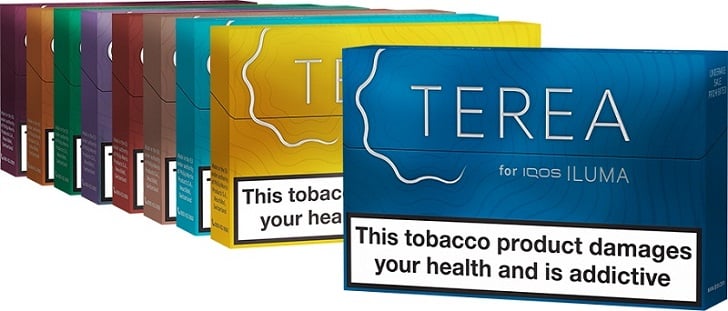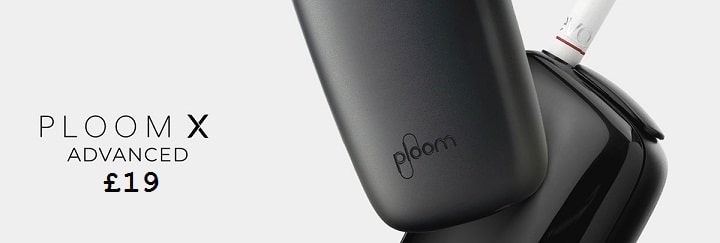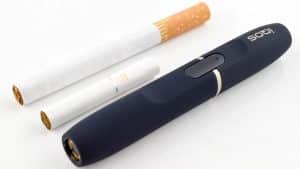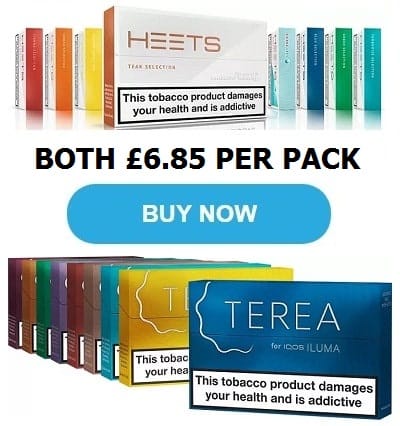
As you’ve probably noticed from the number of reviews we’ve had lately, things are pretty busy in the world of Heat not Burn. Most of the action is in the shape of new products, and we’ve been getting our hands on as many of these as possible so we can let you know what you’re like. That’s not all that’s going on, though. As HnB’s popularity grows, governments and the public health industry are really starting to sit up and take notice. My worry is that this is going to be e-cigarettes all over again; that a great new technology is going to be attacked by people who make a living out of complaining about cigarettes. Sure enough, there are signs of that happening in a few places around the world – but there are some more positive things happening too. Let’s have a look at the latest news from the wild and wacky world of heated tobacco products.
Altria scrap e-cigs, pin hopes on HnB
A big news item last week was that Altria, the company that sells Marlboro cigarettes in the USA, is ending production of its MarkTen and Green Smoke e-cig ranges. Altria say that this is because the products have a relatively poor financial outlook, and new FDA regulations mean it’s too slow and expensive to approve them. To replace the retired products the company is following a two-pronged strategy. One track is to buy a stake in pod mod maker JUUL Labs; the other is to become the US distributer for sister company Philip Morris’s iQOS if the FDA approve it for sale in the United States.
While we’re talking about iQOS, the latest version of the popular device has just been launched in South Africa. Available in Japan, Switzerland and Russia since mid-November, the updated system seems to be getting a rapid global roll-out. Unlike the 2.4 Plus, which gave the original iQOS design a facelift and some technical upgrades, the iQOS 3 is a completely new product. The basic concept is the same – a holder and a portable charging case – but both components are significantly different from the 2.4. The new PCC has a side-opening design rather than a flip top, and apparently some upgrades in battery capacity and charging speed.
On top of the iQOS 3, PMI have also released the new iQOS 3 Multi. While iQOS is the leading HnB product, it’s facing increasing competition from other devices, and they all use a different design concept. iQOS is the only popular system that uses a PCC and a holder that only has enough battery capacity to vape a single stick; all its rivals have larger batteries that store enough power to get through anywhere from eight to 30 HEETs. The iQOS Multi is aimed at users who prefer this; smaller than the complete iQOS 3, but a lot larger than the holder, its internal battery will last for around ten HEETs before it needs a top-up.
South African health nuts complain about iQOS 3
South Africa’s public health industry hasn’t wasted any time in criticising the iQOS 3 launch. Savera Kalideen, director of the National Council Against Smoking, was one of the first to start yelling. On the basis of no evidence at all, Kalideen claimed “Safer is not the same as safe. These products can still cause lung disease.” He demanded stricter regulations, although the government’s new Control of Tobacco Products and Electronic Delivery Systems Bill has already been criticised for making it harder to access reduced-harm products.
iQOS is also facing opposition in South Korea. In June the ministry of food and drug safety claimed that iQOS released higher levels of tar than a traditional cigarette. As tar is a combustion product, and HnB doesn’t involve combustion, this is pretty much impossible unless something has gone badly wrong. Needless to say PMI weren’t too happy, and asked the ministry to release the details of any testing that had been carried out. The ministry refused, and PMI are now suing. The ministry is complaining, but still refuses to back up its claims with evidence.
It’s not all bad news from South Korea though. Heat not burn is the most popular reduced harm option there, with iQOS, BAT’s Glo and the locally made KT&G Lil range all enjoying strong sales. South Korea is an interesting market. Some vapers who’re opposed to HnB claim that iQOS has only sold so well in Japan because e-cigs are almost impossible to buy there. However they’re widely available in South Korea – but HnB is still leading the reduced risk market.
PMI aim to protect farmers
It’s important to remember that tobacco harm reduction doesn’t just affect smokers – it can have impacts a long way from there. For example a HEET contains a fraction of the tobacco a cigarette does. As more smokers switch, demand for tobacco is going to fall sharply. That’s potentially very bad news for tobacco farmers. Although the public health industry tends to smear everyone involved in making cigarettes, HEETs or e-liquid as “big tobacco”, the truth is that almost all tobacco is grown by independent farmers. Anti-tobacco activists don’t care what happens to these farmers, but PMI South Africa chief Marcelo Nico says the company is working with suppliers to help farmers find alternative crops. That way, PMI’s goal of moving all smokers over to safer products won’t cause economic damage to farmers.
So overall, it looks like we’re getting the predictable reaction from public health nuts about HnB – they hate it. Of course they do, because they make a living from harassing smokers, and HnB has already converted a lot of smokers. From the public health point of view there are only two ways to react to it; suppress the technology so smokers keep smoking, and can keep being victimised, or claim it’s just as bas as smoking so they can continue persecuting users. Unfortunately, politicians listen to these clowns – even when the science is showing clearly that they’re wrong. If Heat not Burn fans want to avoid the sort of regulations and bans that are being applied to e-cigs, they need to start writing to their politicians now.











